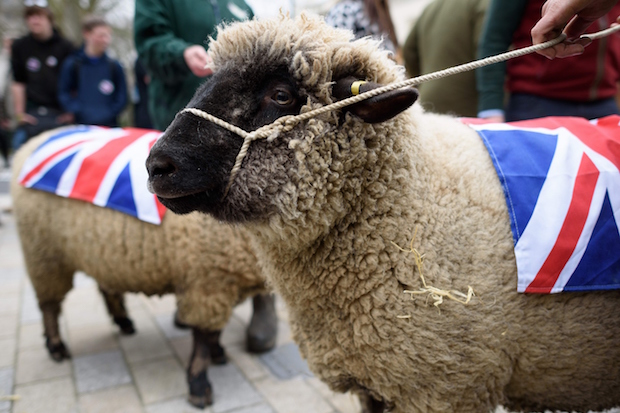As Nigel Farndale wrote in this magazine in February, leaving the EU would have a dramatic effect on British farmers and the agricultural industry. When it comes to British agriculture, the EU very much sets the rules – with regards to both regulations and funding – so a vote for Brexit would mean change, in a big way.
But what makes the EU debate even more interesting when it comes to farming is that the farming minister – George Eustice – has placed himself firmly in the ‘out’ camp. Eustice, after all, was once a Ukip candidate in the European Parliament Elections, and was Campaign Director for the No to the Euro campaign – so perhaps it was unsurprising that he would join the campaign to leave the EU as well. He announced his decision in February (stating that it was because the PM had been unable ‘to deliver the sort of fundamental reform I wanted to see’), but it does put him at loggerheads with other agricultural ministers; Liz Truss is vocally ‘in’, as are the Scottish rural affairs secretary and Northern Ireland farm minister.
Now Eustice has announced what his ‘plan B’ – should we vote to leave – would look like, and it does sound promising on paper. As Nigel Farndale highlighted, ‘we pay £6 billion a year into the CAP, but our farmers get only £3 billion back’ – which isn’t what many people would describe as a fair deal. Eustice argued that the concept of a pan-European legal system for agriculture is ‘fundamentally flawed’, highlighting that as well as the money we pay into the CAP, ‘some 80 percent of legislation affecting DEFRA comes directly from the EU’, meaning that we are far from able to make our own decisions when on agricultural policy.
So what does the farming minister have in mind? He has four themes that he argues should be key to future agricultural policy:
- Investing more in science and technology
- Helping to mitigate against risk, such as weather and price volatility (perhaps through government-backed insurance schemes, or futures markets like they have in the US)
- Replacing the current ‘chaotic’ annual farm payments schemes
- Promoting environmental stewardship and animal welfare
But could British farmers survive without the EU payments – and can they be convinced that voting for Brexit is in their best interests? The Prime Minister has previously said that farmers could ‘suffer enormously’ if we did leave – but Eustice claims that the Prime Minister has made it clear that the government will ‘continue to give farmers and the environment as much support – or perhaps more’ as they currently receive.
Will this be enough to allay their concerns? Can we trust future governments to stick to this promise? After all, as one member of the audience pointed out when Eustice laid out his plans at a Vote Leave event, ‘George Osborne probably hasn’t seen a blade of grass in his life’ – which doesn’t exactly inspire confidence.
Eustice wants, he says, to design a farm policy with farmers – not just with farmers in mind – and has asked all farming unions for their views on what a future farming policy should look like, saying: ‘I want them to be ready for change and to be part of it’. It’s a fine balance for farmers between wanting less regulation from Brussels, and at the same time being dependent on them for funding. It really comes down to a matter of trust – and that’s not something most people have when it comes to politicians.







Comments